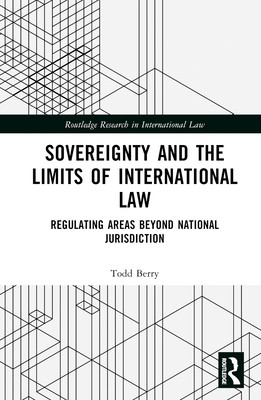
- We will send in 10–14 business days.
- Author: Todd Berry
- Publisher: Routledge
- ISBN-10: 1032589639
- ISBN-13: 9781032589633
- Format: 15.6 x 23.4 x 1.4 cm, hardcover
- Language: English
- SAVE -10% with code: EXTRA
Reviews
Description
The inspiration for this book comes from negotiations that are taking place under the auspices of the United Nations by an intergovernmental conference for a new International Legally Binding Instrument (ILBI) under the United Nations Convention on the Law of the Sea (UNCLOS) on the conservation and sustainable use of marine biological diversity of Areas Beyond National Jurisdiction (ABNJ). The proposed ILBI is attempting to fill existing gaps under international law over marine biodiversity and marine genetic resources (MGR) in ABNJ. One way it is attempting to do this is by having an Access and Benefit-Sharing (ABS) schema over these resources in ABNJ that the United Nations Convention on Biological Diversity (CBD) and its Nagoya Protocol (NP) do not currently cover. These existing frameworks that regulate genetic resources are grounded in the notion of sovereignty. Effectively, States have sovereign rights over their biological resources. The ILBI, however, is attempting to regulate marine biodiversity and MGR in ABNJ. Thus, the notion that negotiators representing nation States under the auspices of the United Nations can regulate ABNJ is paradoxical - are these areas beyond nation States' jurisdiction or not? Implicitly, the negotiators are acting as though they have sovereignty over resources located in what has been historically a sovereign-free space. Thus, the purpose of this book is to investigates this paradox. Essentially, this book critiques the notion that ABNJ can actually be regulated under the auspices of the United Nations by nation-State negotiators.
EXTRA 10 % discount with code: EXTRA
The promotion ends in 20d.09:22:45
The discount code is valid when purchasing from 10 €. Discounts do not stack.
- Author: Todd Berry
- Publisher: Routledge
- ISBN-10: 1032589639
- ISBN-13: 9781032589633
- Format: 15.6 x 23.4 x 1.4 cm, hardcover
- Language: English English
The inspiration for this book comes from negotiations that are taking place under the auspices of the United Nations by an intergovernmental conference for a new International Legally Binding Instrument (ILBI) under the United Nations Convention on the Law of the Sea (UNCLOS) on the conservation and sustainable use of marine biological diversity of Areas Beyond National Jurisdiction (ABNJ). The proposed ILBI is attempting to fill existing gaps under international law over marine biodiversity and marine genetic resources (MGR) in ABNJ. One way it is attempting to do this is by having an Access and Benefit-Sharing (ABS) schema over these resources in ABNJ that the United Nations Convention on Biological Diversity (CBD) and its Nagoya Protocol (NP) do not currently cover. These existing frameworks that regulate genetic resources are grounded in the notion of sovereignty. Effectively, States have sovereign rights over their biological resources. The ILBI, however, is attempting to regulate marine biodiversity and MGR in ABNJ. Thus, the notion that negotiators representing nation States under the auspices of the United Nations can regulate ABNJ is paradoxical - are these areas beyond nation States' jurisdiction or not? Implicitly, the negotiators are acting as though they have sovereignty over resources located in what has been historically a sovereign-free space. Thus, the purpose of this book is to investigates this paradox. Essentially, this book critiques the notion that ABNJ can actually be regulated under the auspices of the United Nations by nation-State negotiators.


Reviews